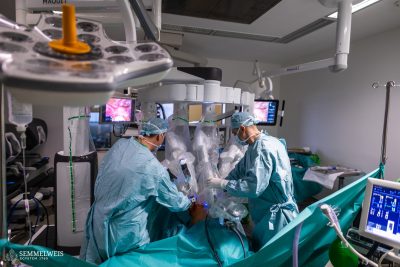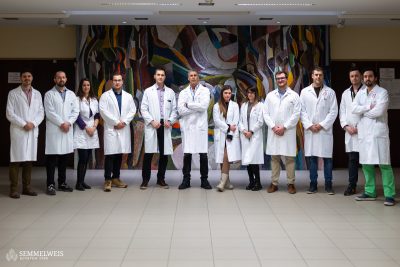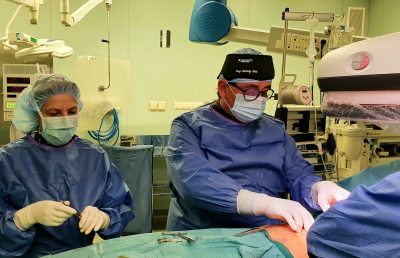Dr. Domonkos Pap, research associate at the 1st Department of Paediatrics, this year’s awardee of the Junior Prima Award, researches the pathomechanism of chronic kidney disease. The aim of his research is to understand the molecular mechanisms behind the disease, as well as to identify molecular targets and agents which may have therapeutic significance. His scientific results contribute to improving the quality of life of patients with chronic kidney disease and to developing drugs that inhibit the progression of the disease.
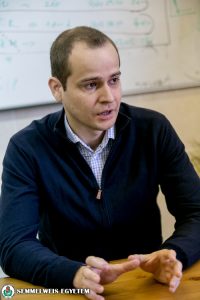 Dr. Domonkos Pap attempts to reveal the pathomechanism of chronic kidney disease, which affects 8-16 percent of the world’s population and causes the death of nearly one million people a year. In the course of his work, he developed a new method to effectively identify molecules that have a pathological role in chronic kidney disease, as well as drugs which can affect them and thus are able to treat chronic kidney disease.
Dr. Domonkos Pap attempts to reveal the pathomechanism of chronic kidney disease, which affects 8-16 percent of the world’s population and causes the death of nearly one million people a year. In the course of his work, he developed a new method to effectively identify molecules that have a pathological role in chronic kidney disease, as well as drugs which can affect them and thus are able to treat chronic kidney disease.
The young researcher attaches great importance to innovation based on basic research, that is, that the new results obtained in basic research could be utilized by the pharmaceutical industry as soon as possible and reach hospital patients. For this reason, in addition to his basic research activity, he is also an active participant in the development of drug therapy for chronic kidney disease at the 1st Department of Paediatrics.
Dr. Domonkos Pap was already committed to natural sciences as a high school student. He began his research at the Department of Immunology at Eötvös Loránd University, where he studied cell-activating functions of complement receptors on immune cells. He then continued his research at Semmelweis University’s 1st Department of Paediatrics, in the framework of the Doctoral School of Clinical Medicine, as a PhD student under the guidance of Dr. Ádám Vannay. There, he started to deal with chronic kidney disease and the central element of its pathomechanism, kidney fibrosis. Dr. Pap published two first-author and nine co-authored publications in international journals during his PhD years and also contributed to seven publications published in Hungarian. His publishing activity, as he said, is largely due to the extremely inspiring and high-quality professional environment at the 1st Department of Paediatrics and its research laboratory.
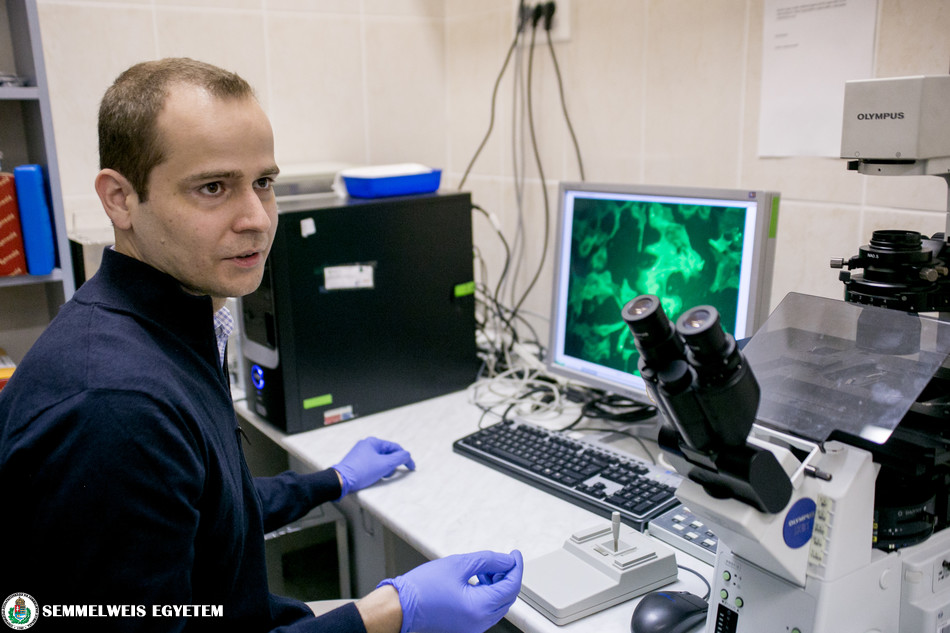 Dr. Pap is currently working as a research associate at the MTA-SE Paediatrics and Nephrology Research Group. The research group, led by Dr. Attila Szabó, has an almost two decade-long internationally renowned professional history. The young researcher emphasized that one of the keys to successful work is translational research, that is, the close professional collaboration of clinical specialists as well as molecular biologists and biomedical engineers conducting basic research. As he said, the award is a great honour for him as well as motivation for the future. He also emphasized the role of his colleagues, as the results contributing to winning the award were achieved by joint work, he added.
Dr. Pap is currently working as a research associate at the MTA-SE Paediatrics and Nephrology Research Group. The research group, led by Dr. Attila Szabó, has an almost two decade-long internationally renowned professional history. The young researcher emphasized that one of the keys to successful work is translational research, that is, the close professional collaboration of clinical specialists as well as molecular biologists and biomedical engineers conducting basic research. As he said, the award is a great honour for him as well as motivation for the future. He also emphasized the role of his colleagues, as the results contributing to winning the award were achieved by joint work, he added.
He also considers educating new researchers and Students’ Scientific Association members an important task; he currently has two students who have achieved outstanding results at Students’ Scientific Association conferences. As he said, his one-and-a-half-year-old daughter and his family, with whom he spends most of his free time, give a lot of strength for his work. If he can, he also tries to play more sports, including basketball on the team of the 1st Department of Paediatrics.
Dr. Domonkos Pap was introduced for the Junior Prima Award by Dr. Attila Szabó, Vice-Rector for Clinical Affairs and Director of the 1st Department of Paediatrics.
Bernadett Bódi
Photo: Attila Kovács – Semmelweis University
Translation: Diána Módos
